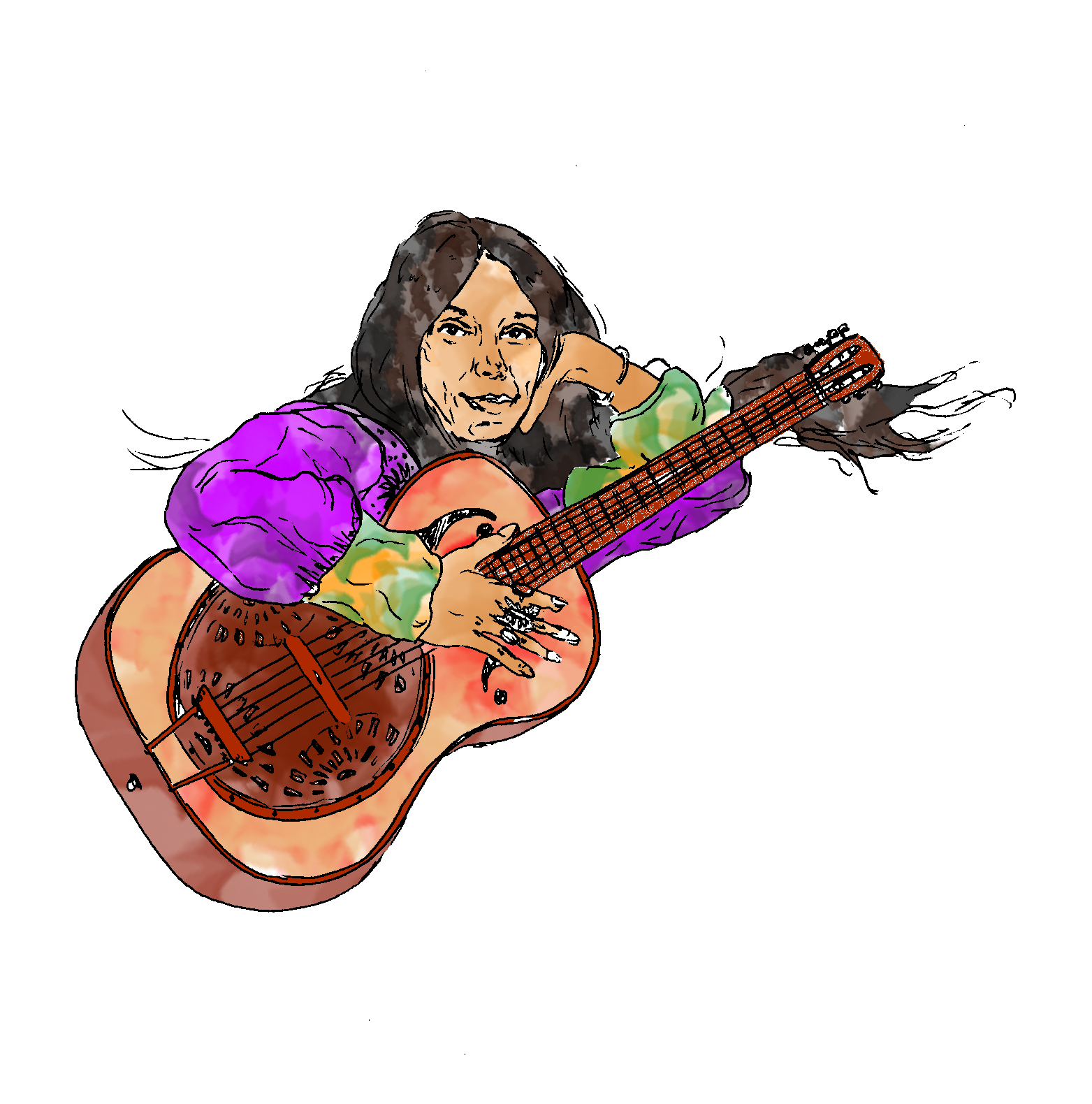Buffy Sainte-Marie deserves praise in folk music
February 21, 2020
 Kayla Snyder
Kayla SnyderThere are few, if any, modern folk singers whose discographies and impact on popular music can rival that of Buffy Sainte-Marie. Although she is not as much of a household name as other folk legends such as Bob Dylan or Neil Young, the mark that she has left on the world is arguably just as significant.
Born in 1941 on the Piapot 75 reserve in Saskatchewan, Canada, Sainte-Marie is a Cree artist who has been releasing music for over 50 years. Her 17 albums, released from 1964 to 2017, incorporate genres including country, folk and experimental rock, and cover topics ranging from the treatment of Indigenous people in North America to love, religion and war.
Sainte-Marie began her career in the 1960s, performing on reservations across Canada and the United States, as well as at folk venues in Toronto and New York City. It was during her stay in Greenwich Village that she got involved in America’s early-60s folk scene, becoming acquainted with fellow Canadian artists Joni Mitchell and Leonard Cohen. During this time, she also wrote the songs that would comprise her debut album “It’s My Way!” which was released in 1964. Although “It’s My Way!” never charted or became well-known in mainstream American culture, it proved to be incredibly influential in the folk community and its impact reverberated throughout the entire nation in a more indirect way.
The album opens with the song “Now That The Buffalo’s Gone,” a striking criticism of American settler colonialism and a call to action for the American people. The song’s title refers to the genocidal American policy of killing buffalo as a way to eliminate Native food sources. In the song, Sainte-Marie sings to an anonymous “dear lady” and “dear man,” asking them “if a change has come about … or are you still taking our lands?” Later, she contrasts the treatment of Indigenous nations in North America with the condition of post-war Germans, who were able to keep “their pride and their land.” This song also holds special significance in the American Indian Movement of the 1970s—the radio station that broadcasted from occupied Alcatraz Island in 1970 would play the song at the beginning of every episode.
Multiple other songs on “It’s My Way!” gained acclaim in the public consciousness. Her song “Universal Soldier” became a hit after massively successful covers by Donovan and Glen Campbell. Later, its portrayal of the senseless brutality of war would cause it to become an anthem at Vietnam War protests. The song “Cod’ine” was also covered by Janis Joplin. Unfortunately, the material success of these covers often far outshadowed Sainte-Marie’s original versions, a fact that points towards an insidious type of anti-Native racism in American music.
It is also likely that the provocative political content of her music played a major role in Sainte-Marie’s comparative lack of fame to many of her world-renowned contemporaries. In fact, there is clear evidence of active government efforts to keep her music off the airwaves. In a 1999 interview, Sainte-Marie said “I found out in the 1980s that President Lyndon B. Johnson had been writing letters on White House stationary praising radio stations for suppressing my music.”
This black-listing effort, also perpetrated by Richard Nixon and the FBI, had a tremendous impact on Sainte-Marie’s success in the United States. It was also likely tied to the FBI’s general efforts to violently suppress protest movements in the 1970s through COINTELPRO, whose strategies included heavy surveillance and even assassination of people such as Fred Hampton, deputy chairman of the Illinois chapter of the Black Panther Party.
It is no secret that the U.S. government and media has spent years trying to silence resistance to settler colonialism. It is our responsibility, whether we are Native or not, to counter this effort by spreading Indigenous art and stories that remind the world that “Indians still exist,” in Buffy Sainte-Marie’s words. We can also show solidarity with current land and water protectors such as the Wet’suwet’en in northwestern Canada, who are currently protecting their unceded land from invasion by a Coastal GasLink pipeline and the Royal Canadian Mounted Police. When the mainstream media refuses to amplify marginalized voices, it is the responsibility of ordinary citizens to do so.

Comments
Before submitting a comment, please review our comment policy. Some key points from the policy: